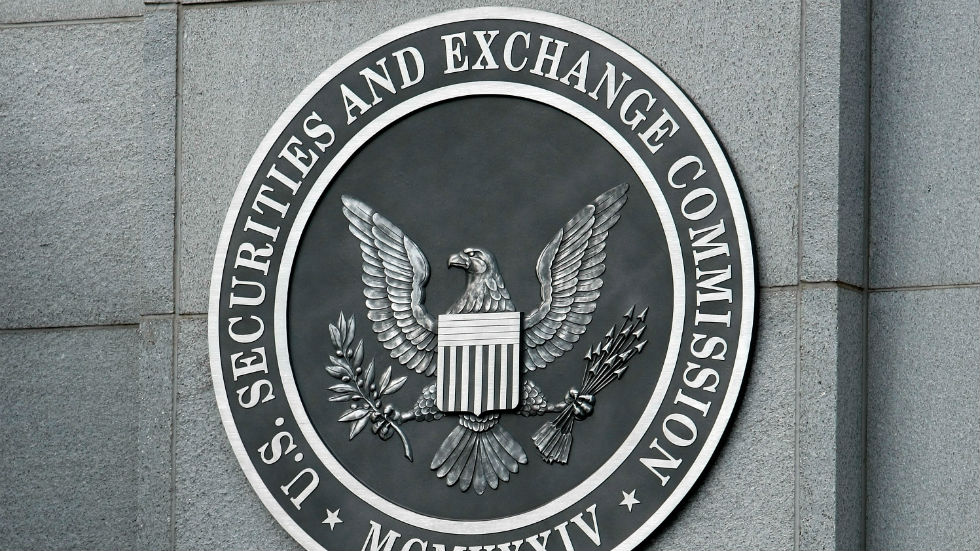
Unlocking the Future: The Promise and Potential of Bitcoin ETFs in Mainstream Investment
Bitcoin ETFs: Catalyzing Institutional Participation
Following a period of subdued engagement triggered by the collapse of major crypto players like FTX during the extended crypto winter of 2022, the momentum within the crypto sector has witnessed a rejuvenation. Bitcoin, alongside various other cryptocurrencies, languished through a phase of lackluster trading as regulatory scrutiny enveloped multiple crypto exchanges. However, a transformative shift was catalyzed by the news that industry powerhouses such as BlackRock, Fidelity, and Valkyrie were vying for approval to introduce spot Bitcoin ETFs, effectively reigniting investment enthusiasm in the crypto realm
While institutional contenders had previously submitted spot Bitcoin ETF proposals to the United States Securities and Exchange Commission (SEC), these initiatives had met with varying outcomes, ranging from withdrawal to outright rejection. A milestone was marked with the SEC’s approval of the inaugural Bitcoin futures ETF, the ProShares Bitcoin Strategy ETF, in October 2021—a significant stride toward mainstream acceptance.
Institutional Entrants and the Balancing Act
The pivotal move by asset management titan BlackRock to file a spot Bitcoin ETF application with the SEC has reshaped the landscape, elevating the probability of the regulatory green light. Industry expert Eric Balchunas from Bloomberg posits a 50% likelihood of BlackRock’s spot Bitcoin ETF securing approval—an event that could be transformative for the industry. The subsequent wave of ETF filings initiated by BlackRock on June 16 spurred a cascade of similar applications from WisdomTree, Invesco, Valkyrie, and others. A total of seven institutional heavyweights have now embarked on the journey to establish spot Bitcoin ETFs.
Industry pundits predict the period spanning 2023 to 2024 to be pivotal in securing spot Bitcoin ETF approval. Chief Strategy Officer of Bitrue, Robert Quartly-Janeiro, underscores the economic backdrop marked by surging inflation, intricate money supply dynamics, and elevated interest rates—a fertile environment for cryptocurrencies to flourish. Despite market volatility, institutional faith in cryptocurrencies remains resolute. The influx of institutional investors into the crypto landscape has expanded significantly compared to a mere year ago. Even trailblazers like MicroStrategy, who temporarily suspended their Bitcoin acquisitions, have reignited their involvement, actively accumulating Bitcoin in 2023.
Balancing Risk and Reward
The Chief Technology Officer at Bitfinex, Paolo Ardoino, underscores Bitcoin’s enduring value as a safeguard against devaluation—a sentiment echoed by traditional financial institutions. The upsurge in applications for Bitcoin spot market ETFs reflects a burgeoning demand from both investors and issuers, signifying a broader institutional momentum towards embracing Bitcoin.
The reticence exhibited by institutions over the past year was partially catalyzed by events like the FTX incident and subsequent banking challenges. The evolving regulatory terrain is paving the way for institutions to reevaluate their stance and cautiously re-enter the crypto space.MicroStrategy’s unwavering commitment to Bitcoin stands as a testament to institutional leadership. CEO Michael Saylor’s resolve to continue accumulating Bitcoin, even amid price turbulence, underscores the significance of institutional conviction.
Institutional Push and Market Resurgence
The resurgence of institutional interest rekindles optimism for a potential new bull run. In the prior bullish trajectory of 2020 to 2021, institutional investments were instrumental, with companies like MicroStrategy and Tesla integrating Bitcoin into their balance sheets. The collective impact of institutional and retail interest is poised to amplify the growth of cryptocurrency market capitalization.
The potential approval of BlackRock’s ETF application introduces the prospect of doubling Bitcoin’s value. This anticipated move not only intensifies institutional interest but also augments competition among financial entities, channeling increased funds from traditional markets into the crypto domain. Alongside institutional momentum, regulatory advancements in markets like Hong Kong open avenues for broader retail participation, offering a diverse spectrum of drivers for the impending bull run.
Bitcoin Halving and Institutional Propulsion
With Bitcoin’s halving event scheduled for April 2024, institutional engagement assumes a pivotal role in shaping the future crypto landscape. Historical patterns underscore that bull runs often coincide with halving events—a phenomenon attributed to the scarcity-driven price surge as investors, both institutional and retail, seek to bolster their Bitcoin portfolios.
Open your free digital wallet here to store your cryptocurrencies in a safe place.

Bitcoin ETF decision expected by Friday
The US Securities and Exchange Commission (SEC) has to make an important decision related to the much-anticipated bitcoin ETF, or the bitcoin-based exchange-traded fund.
This decision is expected by Friday, as the SEC has an deadline fixed on March 11st to make the approve or disapprove a proposed rule change that would allow the creation of the first worldwide bitcoin ETF.
But, because the 11st falls on a Saturday, this decision could come before that date, maybe on Friday.
The proposal came three years ago, in mid 2013, by investors Cameron and Tyler Winklevoss.
If the fund receives approval, several experts speculated that bitcoin price could grow and maybe this expected approval already drove the bitcoin price in recent weeks, setting new all time highs in the recent period.
In fact, Bitcoin price neared $1,300 in recent days, reaching $1,293.47 on 3rd March.
By the way, bitcoin price kept falling back to $1,300, experiencing a drop on 7th March, when markets drop below $1,200 for a few hours.
Otherwise, if the SEC decides to reject the proposal that would allow the Bats Global Exchange to list the bitcoin ETF, experts said that the digital currency price would be negatively affected.
Phil Bak, CEO atACSI Funds explained that generally the SEC wants to avoid the appearance of “publicly rejecting an ETF”, so if the agency didn’t plan on approving a fund, it would ask for the filing to be pulled ahead before any final decision.
“In this case, the government agency may want to show the world it is unsure about bitcoin. Alternatively, it could also be that the advocates want to support it to the end and let this proposed fund get its day in court, rejection or not.”
In the lack of definitive statements published by the SEC, it’s really easy to understand why a common return of uncertainty has emerged during this week.
Arthur Hayes, CEO at BitMEX, explained:
“I have heard good arguments for and against the ETF being approved. At this point it is a coin toss.”
Waiting for the Bitcoin ETF
At the moment people who are waiting for the SEC’s decision canno do anything instead of only watching and waiting for the 11th March deadline.
ETF expert and co-founder at RagingBull, Jeff Bishop, commented that the SEC could make its decision further past the 11th, also because of the recent price gain.
“I have the feeling they will find a way to delay this even more though. With bitcoin at all-time highs and the SEC having a terrible record for allowing new ETFs to come to market at absolute tops, they will likely push back on this until things cool a bit. It should be up to investors to decide the true price of bitcoin. The more liquidity and options [there are] to trade it, the more transparent and accurate the pricing will be. It should not be up to a government agency to withhold something like this from the public.”
Open your free digital wallet here to store your cryptocurrencies in a safe place.